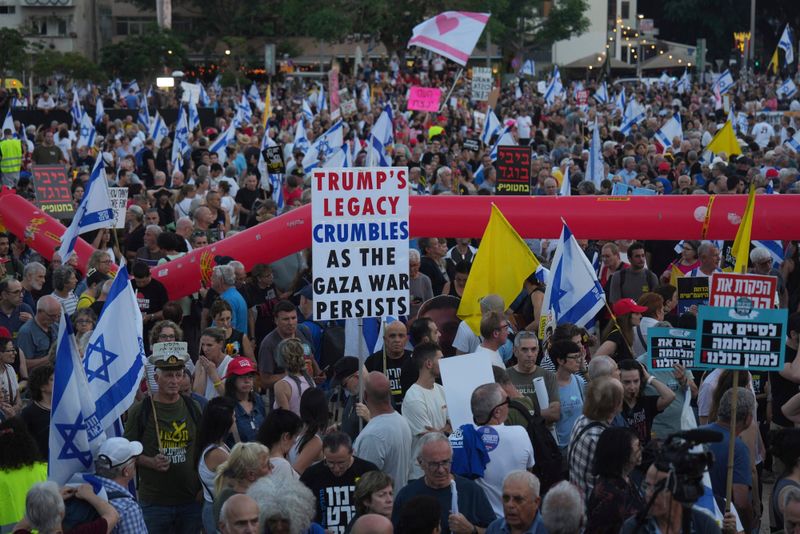French president Emmanuel Macron has announced that France will officially recognise the State of Palestinian as an independent nation. This is expected to be done in September at the United Nations General Assembly.AdvertisementThis move comes at a time when Palestine is embroiled in a violent conflict with its historically hostile neighbour Israel, a close US and NATO ally, which has resulted in a humanitarian disaster, and the political and economic landscape of Europe facing significant challenges because of internal divisions, economic vulnerabilities and a shifting geopolitical dynamics. It not only indicates France’s stance on the grim situation in Gaza but also points towards its relationship with the US which has turned frosty over the past few months.France, which itself has Europe’s largest Jew and Muslim population, will be the first G-7 nation to recognise the Arabic entity since the formal declaration of the State of Palestine in November 1988, when Palestine Liberation Organisation (PLO), led by Yasser Arafat, proclaimed independence in Algiers. This declaration established Palestine as a ‘state-in-exile’, claiming sovereignty over the West Bank, Gaza Strip and East Jerusalem.International recognition of PalestinePalestine has been recognised by 147 out of 193 member states of the United Nations. India officially recognised the State of Palestine in 1988. Earlier, in 1974, India became the first non-Arab state to recognize the PLO as the sole and legitimate representative of the Palestinian people.While many countries, including European nations and NATO members, have already recognised Palestine, Macron’s move sets France on a different track from some major western powers that are its close allies like the US, UK and Germany, which have not recognised Palestine. It has also drawn sharp responses from the US and Israel, with which it has been at war.Russia, Brazil and China are among countries that have recognised Palestine. Some countries like Japan, Canada, UK, Switzerland, Germany and Australia have not formally recognised Palestine but maintain unofficial missions called a delegation or representation office instead of an embassy. The US is the only major power, along with Israel, Mongolia and other smaller countries, which have no interface with Palestine.Palestine was recognised by the United Nations in 2012 as a “permanent observer state.” The Palestinian Authority, as its government is called, has been pursuing full membership of the UN. It requires approval by the UN Security Council, but the US has exercised its veto power to block it. It is also a member of other multi-national forums like the Organisation of Islamic Cooperation and the Arab League.Palestine-Israel conflictThe State of Palestine comprises the Israeli-occupied West Bank, including East Jerusalem, and the Gaza Strip, which are collectively referred to as occupied Palestinian territories. Their total land area measures about 6,000 square kilometres, with a population of over five million. The territories share borders with Israel, Jordan and Egypt.The proclaimed capital of the state is Jerusalem, although Ramallah, 10 km to the north in the central West Bank, serves as the de facto administrative centre. Gaza City was its largest city prior to evacuations in 2023. It is an underdeveloped state, banking on international aid, agriculture and local manufacturing.Israel and Palestine have historically been embroiled in a complex conflict over competing national aspirations, politico-religious issues, historical claims and geopolitical dynamics, the roots of which go back to the late 19th century. It has involved a series of wars, uprisings and violence.The ongoing attacks and air strikes in Gaza Strip that lies between southern Israel and Egypt are at the centre of the latest round. It began in October 2023 when the Palestinian group Hamas launched a surprise attack on Israel and later, drawing Iran and the US into its fold. There have been repeated calls for a ceasefire by the international community.Impact of France’s moveFrance, which also has deep relations with India, has created diplomatic rumbles in West Asia and much further West by its move to recognise Palestine, with Israel condemning it as a “reward for terrorism” and the US calling it “reckless.” Spain, Palestine, Saudi Arabia and Hamas, on the other hand, have welcomed it.India, which has strong ties with Israel as well as historic relations with Palestine, advocates a two-state solution and the establishment of a sovereign State of Palestine within secure and recognised borders, co-existing in peace with Israel, which is also in sync with France’s approach.West Asia watchers have termed France’s recognition of Palestine “a bold diplomatic step” that would “affirm Palestinian self-determination and pressure Israel amid the Gaza crisis.”Geopolitical experts say that while it strengthens Palestine’s global standing, its practical impact may be limited without broader international support or enforceable actions against Israel’s occupation. The move risks straining ties with Israel and the US but could inspire further European recognitions reshaping the diplomatic landscape. This comes at a time when US’s relations with western Europe are not at their former best, with US President, Donald Trump’s tariff warfare and his calls for reducing US role in Europe’s security.According to the Washington Post, Macron’s move will put additional pressure on other European countries to follow suit—especially Britain, where Prime Minister Keir Starmer is facing growing calls from within his party to endorse a Palestinian state.Experts have said that the enormity of the humanitarian disaster during the Gaza war and the Israel’s refusal to negotiate for a two-state solution has made it imperative for many European powers to bypass Israel and recognise Palestine.Further, for a “European heavyweight” like France to recognise Palestinian statehood sends a signal to the international community, particularly the US and Israel, that the situation in Gaza is unacceptable and diplomatic intervention is required to manage and solve the crisis.
previous post


